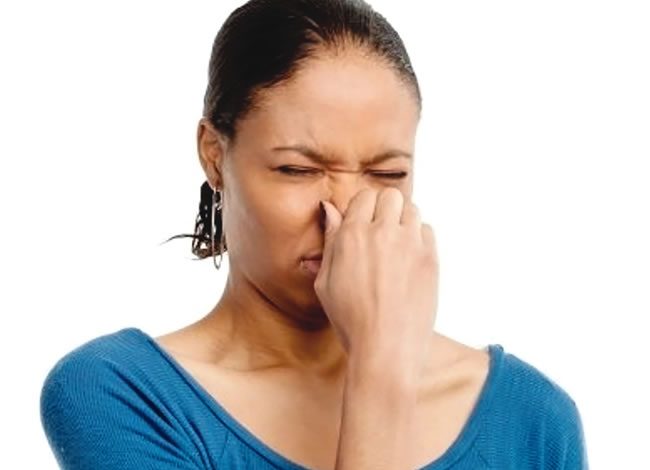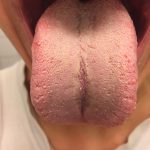Medications That Cause Foul-Smelling Gas

Gas is a normal byproduct of digestion, and it is released from the body through flatulence. However, some people may experience foul-smelling gas that can be embarrassing and uncomfortable. Healthy individuals pass gas between 12 and 25 times a day. However, it is not uncommon for people to fart more than this, depending on their choice of foods.
Most gas passed during flatulence goes unnoticed because there isn’t a smell. It may contain odorless gases, such as nitrogen, oxygen, hydrogen, carbon dioxide, and methane, but a small portion includes hydrogen sulfide, which causes it to smell like rotten eggs. Think of hydrogen sulfide as the waste of the microbes helping you digest the indigestible. Then, there are other factors contributing to smelly farts, including compounds that are byproducts from meat digested, and whether there are feces present in the rectum when flatulence occurs
While certain foods can cause gas to smell bad, certain medications can also lead to foul-smelling gas. In this article, we will discuss some of the medications that can cause foul-smelling gas.
Medications That Cause Foul-Smelling Gas
Antibiotics
Antibiotics are used to kill bacteria that cause infections in the body. However, they can also disrupt the natural balance of bacteria in the gut, leading to an overgrowth of harmful bacteria. When these bacteria feed on undigested food in the gut, they release foul-smelling gas. Some of the antibiotics that can cause foul-smelling gas include clindamycin, metronidazole, and tetracycline.
Nonsteroidal Anti-Inflammatory Drugs (NSAIDs)
NSAIDs are commonly used to relieve pain and reduce inflammation. However, they can also irritate the lining of the stomach and intestines, leading to increased gas production. NSAIDs such as aspirin, ibuprofen, and naproxen can cause foul-smelling gas.
Iron Supplements
Iron is an essential nutrient that is required for the production of red blood cells. Iron supplements are commonly used to treat iron deficiency anemia. However, they can also cause gastrointestinal side effects, including foul-smelling gas. Iron supplements can also cause constipation, which can lead to increased gas production.
Proton Pump Inhibitors (PPIs)
PPIs are medications that are used to treat gastroesophageal reflux disease (GERD) and other conditions that cause acid reflux. They work by reducing the production of stomach acid. However, they can also disrupt the natural balance of bacteria in the gut, leading to increased gas production and foul-smelling gas. Some of the PPIs that can cause foul-smelling gas include omeprazole, esomeprazole, and lansoprazole.
Diabetes Medications
Some medications that are used to treat diabetes can also cause foul-smelling gas. For example, metformin is a medication that is commonly used to treat type 2 diabetes. It works by reducing the amount of glucose that is produced by the liver. However, it can also cause gastrointestinal side effects, including foul-smelling gas.
How To Prevent Medication-Induced Farting
Medication-induced farting can be uncomfortable and embarrassing, but there are steps you can take to prevent or reduce the frequency and severity of this side effect. Here are some tips to help you prevent medication-induced farting:
1. Talk to your healthcare provider: If you are experiencing frequent and severe farting as a result of your medication, talk to your healthcare provider. They may be able to switch you to a different medication that is less likely to cause this side effect, or they may be able to adjust the dosage of your current medication.
2. Take your medication with food: Taking your medication with food can help to reduce the likelihood of gastrointestinal side effects, including farting. Food can help to coat the stomach and intestines, reducing the irritation caused by medication.
3. Avoid certain foods: Some foods can contribute to farting, even in people who are not taking medication. Avoiding foods that are known to cause gas, such as beans, broccoli, cabbage, and onions, may help to reduce the frequency and severity of farting.
4. Stay hydrated: Drinking plenty of water can help to flush toxins from the body and prevent constipation, which can contribute to farting.
5. Exercise regularly: Regular exercise can help to improve digestion and reduce the likelihood of gastrointestinal side effects, including farting.
6. Consider probiotics: Probiotics are beneficial bacteria that can help to promote a healthy gut microbiome. Taking probiotic supplements or eating probiotic-rich foods, such as yogurt or kefir, may help to reduce the frequency and severity of farting.
In summary, medication-induced farting can be an uncomfortable side effect, but there are steps you can take to prevent or reduce its occurrence. Talking to your healthcare provider, taking medication with food, avoiding certain foods, staying hydrated, exercising regularly, and considering probiotics may all be helpful in reducing medication-induced farting.





